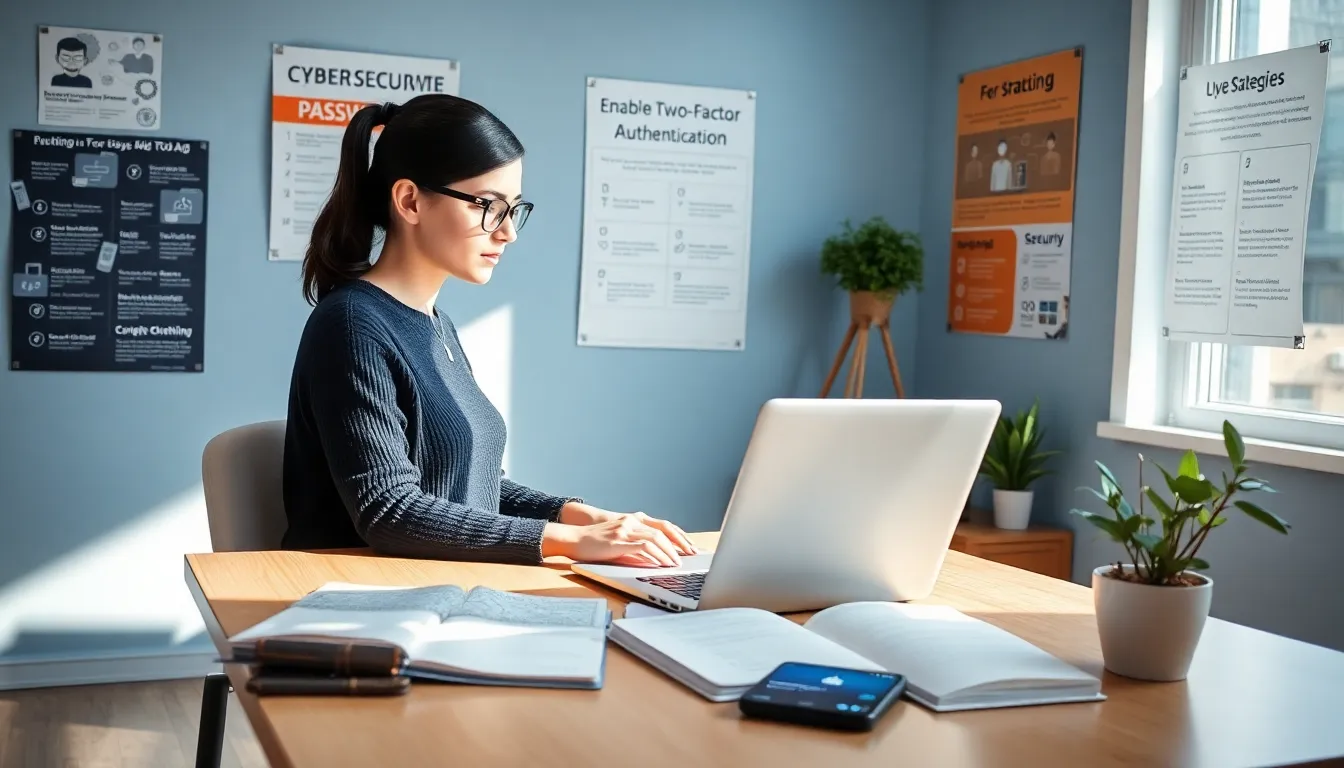Table of Contents
ToggleIn today’s interconnected world, maintaining the security and privacy of one’s online life has never been more critical. With the rise of cyber threats and the ever-looming presence of data breaches, safeguarding personal information is not just an option, it’s a necessity. This article delves into the essentials of online security, providing insights and strategies to help individuals protect their digital lives effectively. Whether it’s understanding the underlying principles of online security or knowing the tools that can help, this guide is your roadmap to keeping your online identity secure.
Understanding Online Security

Online security encompasses the strategies and measures individuals and organizations use to protect their information and data from unauthorized access, theft, or damage. In an era characterized by constant cyber activity, the importance of online security cannot be overstated.
At its core, online security involves a mix of technology, policies, and practices designed to safeguard both personal and sensitive information. It addresses various concerns, from identity theft to financial fraud, and incorporates aspects such as data encryption, secure connections, and user authentication, which play a vital role in establishing a safe digital environment.
The Importance Of Online Privacy
Online privacy is a fundamental right that individuals should prioritize. With the increasing number of data breaches and cyberattacks, maintaining privacy online is vital for protecting personal information. The implications of a privacy breach can be extensive, leading to identity theft, financial loss, and long-term consequences for one’s reputation.
Also, many people underestimate how much of their information is already public. Social media platforms and various applications often collect data without user consent, making it imperative to adopt measures for privacy protection. Building awareness about what information is shared online and implementing privacy settings on various platforms can help mitigate risks.
Best Practices For Online Security
To effectively secure online activities, individuals can adopt several best practices. Here are some key strategies:
- Use Strong Passwords: Create complex, unique passwords for various accounts. Utilizing a mix of letters, numbers, and symbols enhances security.
- Enable Two-Factor Authentication (2FA): 2FA adds an additional layer of security beyond just a password. It requires users to verify their identity through another device or application.
- Keep Software Updated: Regularly updating software, apps, and operating systems ensures that security vulnerabilities are patched promptly.
- Be Cautious with Public Wi-Fi: Avoid accessing sensitive information over public networks. If necessary, use a virtual private network (VPN) to secure the connection.
Tools And Resources For Enhanced Security
Several tools and resources can assist in bolstering online security:
- Password Managers: These tools securely store and generate complex passwords, minimizing the risk of password-related breaches.
- Antivirus Software: Reliable antivirus programs can detect and eliminate malware threats, providing an essential layer of protection against cyberattacks.
- VPNs: Virtual Private Networks encrypt internet traffic, ensuring that data remains confidential even on unsecured networks.
- Browser Extensions: Various extensions can help block ads and trackers, enhancing privacy while browsing the internet.
Common Threats To Online Security
Understanding potential threats is crucial for effective online security. Common threats include:
- Phishing Attacks: These deceptive attempts trick individuals into providing sensitive information through fake emails or websites.
- Malware: Malicious software designed to harm or exploit devices can enter systems through downloads, email attachments, or compromised websites.
- Ransomware: This type of malware encrypts data, rendering it inaccessible until a ransom is paid. It poses one of the most severe threats to both individuals and organizations.
- Data Breaches: These occur when unauthorized parties access and steal sensitive information from databases, often leading to widespread identity theft.
Strategies For Protecting Personal Information
To protect personal information effectively, individuals can carry out several strategies:
- Limit Data Sharing: Be selective about what information is shared online and limit it to what is absolutely necessary.
- Review Privacy Settings: Regularly check and adjust privacy settings on social media and other platforms to control who can see personal information.
- Monitor Financial Statements: Regularly reviewing bank and credit card statements can help detect unauthorized transactions early.
- Educate Yourself and Others: Awareness about digital threats and safe online practices can empower users to make informed decisions while browsing.
Conclusion
In a world where online security threats continue to evolve, individuals must remain proactive in protecting their online lives. By understanding the importance of security, adopting best practices, and utilizing available tools, they can safeguard their personal information effectively. With the right strategies in place, users can enjoy the benefits of the digital world while keeping their privacy intact. Empowerment through knowledge and proactive measures is the key to maintaining a secure online presence.




